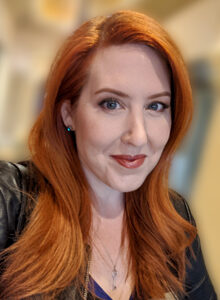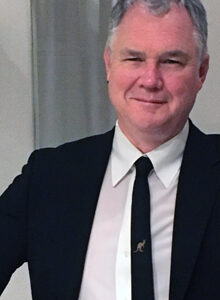Autistic people are more likely to report difficulty making and sustaining relationships,1-3 leading to assumptions that they aren’t drawn to socializing, but we now know that autistic people desire and benefit from platonic, romantic, and physical relationships to a similar degree as non-autistic people.4 In a recent study of general sexuality, autistic respondents were more likely to report engaging in polyamorous and/or non-monogamous relationships.5 This is notable given that the existence and complexity of autistic relationships is often still underestimated.

Polyamory is a subset of a practice referred to as ethical or consensual non-monogamy, or CNM. CNM encapsulates relationships where all parties are aware of, and consent to, potentially engaging in multiple simultaneous relationships, be they solely romantic, only physical, or both.6 CNM is estimated to be practiced by about 4-5% of adults in Western populations,7 however this is noted as unreliable, as polyamory, polygamy, infidelity and CNM are often conflated, stigma may suppress reporting, and convenience sampling can result in unrepresentative cohorts.8
CNM relationships take many forms,9, 10 with all members dating each other or seeing different people. Some make agreements not to date outside the established group, to only date people of a specified gender, or that additional partners are only to be seen on a non-romantic basis. Some groups live and raise children together, and some CNM relationships are conducted entirely by long-distance, with little to no physical contact.
In a society where monogamy is the more common relationship choice, these various structures can lead to complicated social dynamics and difficult emotions, with little societal modelling for how to navigate them.11 This may lead to expectations that autistic people would be less interested in such relationships, given characteristic challenges with socialising and emotional regulation.12 However, some facets of the lifestyle may actually lend themselves to autistic tendencies.
Why Does Consensual Non-Monogamy Appeal to Many Autistic People?
Just as we know that all autistic people are individuals in their personal preferences, there could be many and varied reasons that some may find themselves interested or involved in CNM relationship dynamics.
As it can lead to less time spent with each partner, CNM can suit those who prefer autonomy and control over their living space and schedule.13 CNM can also allow them to delve into their special interests without distraction.14
Long-distance relationships are often maintained through written exchanges. These allow emotional connection without feeling obligated to engage in physical interactions. Such remote and careful responding suits autistic people with challenges in verbal communication, auditory processing, or sensory sensitivities.15
The tendency for most autistic people to be compelled towards overt honesty16 may, at times, cause more frequent disclosure of desires for additional partners. In turn, this may lead to negotiation for CNM instead of pursuing an affair, to maintain a sense of integrity.
Delays in social development can cause autistic people, particularly males, to start dating much later in life after acquiring the necessary social skills and confidence.17 Conversely, autistic women more often report staying in relationships formed in their teenage years, despite developing self-awareness that their needs are diverging from their partners. Whether they hope to engage in the kind of dating they missed out on in early adulthood or find partners who suit their newly developed self-identity, there could be reluctance to lose attachments formed with those who appreciate their unique tastes and mannerisms. This may be driven by fear of ending up alone or causing harm to those they care about.
Sometimes these personal revelations include increased awareness of sexuality and gender identity, and long into a treasured relationship, one might realise they’re attracted to genders other than their partner’s, or they might desire a transition to a gender which doesn’t match their partner’s orientation18 – CNM enables these needs to be explored whilst retaining these important connections and the lives built together.
Evidence suggests autistic people report LGBTQIA+ identities significantly more often than their non-autistic counterparts19 and the LGBTQIA+ community have historically been more likely to pursue CNM than cisgender or heterosexual individuals.20 As well as those exploring gender and sexuality, CNM can appeal to those who don’t feel comfortable in relationships that include both sex and romance. This can include asexual and aromantic people, who have also reported a higher tendency to be interested in CNM relationships.21
A newer term coined by the LGBTQIA+ community is “platoniromanticism.” Yet to be attributed or formally defined in research circles, this refers to difficulty differentiating romantic and platonic attraction. When this occurs specifically due to neurodivergence, it is referred to as “nebularomanticism.” Some research has indicated that polyamorous and asexual people are more likely to report this kind of “blurred” relationship status.22 Possibly relating to the difficulty many autistic people express in identifying emotions and sensing social boundaries. In turn, this could lead to more friends being elevated to partner status.
Difficulties Associated with Practicing Consensual Non-Monogamy
Although CNM may suit the needs of many, some may be compromising their ideal relationship structure to seek approval and secure or maintain intimate relationships, as autistic people demonstrate a higher likelihood of being victims of abuse and coercion.23, 24
Research conducted by Pecora et al. (currently in submission),25 suggests autistic people may feel obligated to engage in “transactional” relationship behaviours, where they agree to do things for their partner that they’d rather decline if they felt empowered to do so. In some situations, CNM may be one such compromise.
Autistic people can also be more likely to acquire STDs, especially where safe-sex curricula in schools is lacking, as they may find it harder to gain communal wisdom through friendships in adolescence.3, 24, 26, 27 Even when one receives standard sexual education, the safe-sex practices which apply in a committed monogamous relationship may not carry over when one has multiple partners.
Interest Within the Community and Caring Professions
Programs focusing on providing guidance in intimate relationships for autistic adolescents and adults are proliferating.28,29 One such program has reported receiving feedback from the autistic consultative group requesting that polyamory be included in the curriculum.30 Books written to encourage and guide autistic people in enjoying satisfying intimate relationships have also touted the potential benefits of exploring CNM.31
As well as increasing recognition of the needs of the diverse adult autistic population,32 more psychologists and counsellors are also specialising in CNM,33 and professional training programs are emerging which guide them in tailoring their practice to meet the needs of these groups.
Studies in Development
To date, scientific insights on autistic CNM have been incidental, predominantly provided in open text fields by autistic respondents in more general studies investigating sexuality and relationships.34, 35 However, the number of online blogs and public discussion boards discussing the topic suggests that autistic and other neurodivergent CNM practitioners would welcome a deeper understanding of whether they are more likely to have interest or experience in CNM, and if so, what might be driving this phenomenon. As such, the Healthy Autistic Life Lab is currently preparing a study to gather information from the autistic and CNM communities, with the hope that knowledge of the underlying factors may contribute to autistic adults enjoying personally meaningful, healthy relationships.
Janet Walsh, BPsychSc(Hons), is an autistic adult with ADHD and a provisional PhD candidate at Deakin University. Mark A. Stokes, PhD, is an Associate Professor within Deakin University’s School of Psychology and leader of the Healthy Autistic Life Lab. For more information, email jwalsh@deakin.edu.au or mark.stokes@deakin.edu.au.
Footnotes
- Black MH, Kuzminski R, Wang J, Ang J, Lee C, Hafidzuddin S, et al. Experiences of Friendships for Individuals on the Autism Spectrum: A Scoping Review. Review Journal of Autism and Developmental Disorders. 2022.
- Petrina N, Carter M, Stephenson J. The nature of friendship in children with autism spectrum disorders: A systematic review. Research in Autism Spectrum Disorders. 2014;8(2):111-26.
- Hancock G, Stokes MA, Mesibov G. Differences in Romantic Relationship Experiences for Individuals with an Autism Spectrum Disorder. Sexuality and Disability. 2020;38(2):231-45.
- Jaswal VK, Akhtar N. Being versus appearing socially uninterested: Challenging assumptions about social motivation in autism. Behavioral and Brain Sciences. 2019;42:1-84.
- Sala G, Hooley M, Stokes MA. Romantic Intimacy in Autism: A Qualitative Analysis. Journal of Autism and Developmental Disorders. 2020;50(11):4133-47.
- Barker M, Langdridge D. Understanding Non-Monogamies. New York: Routledge; 2010.
- Rubin J, Moors A, Matsick J, Ziegler A, Conley T. On the Margins: Considering Diversity Among Consensually Non-monogamous Relationships. Journal fur Psychologie. 2014;22:1-23.
- Rubel AN, Burleigh TJ. Counting polyamorists who count: Prevalence and definitions of an under-researched form of consensual nonmonogamy. Sexualities. 2020;23(1-2):3-27.
- Easton D, Liszt CA, Dodson B, Nearing R, Magazine LM, Anapol D, et al. The ethical slut: Potter/TenSpeed/Harmony; 2011.
- Deborah A. Polyamory in the 21st Century : Love and Intimacy with Multiple Partners. Lanham, Md: Rowman & Littlefield Publishers; 2010.
- Easton D, editor Making Friends with Jealousy: Therapy with Polyamorous Clients 2010.
- APA. DSM-V diagnostic and statistical manual of mental disorders. Fifth edition. ed: American Psychiatric Association; 2013.
- Humphrey N, Symes W. Peer interaction patterns among adolescents with autistic spectrum disorders (ASDs) in mainstream school settings. Autism. 2011;15(4):397-419.
- Yew RY, Samuel P, Hooley M, Mesibov GB, Stokes MA. A systematic review of romantic relationship initiation and maintenance factors in autism. Personal Relationships. 2021;28(4):777.
- Horder J, Wilson CE, Mendez MA, Murphy DG. Autistic Traits and Abnormal Sensory Experiences in Adults. Journal of Autism and Developmental Disorders. 2014;44(6):1461-9.
- Atherton G, Lummis B, Day SX, Cross L. What am I thinking? Perspective-taking from the perspective of adolescents with autism. Autism. 2019;23(5):1186-200.
- Bellini S. Social Skill Deficits and Anxiety in High-Functioning Adolescents With Autism Spectrum Disorders. Focus on Autism and Other Developmental Disabilities. 2004;19(2):78-86.
- Brynn T. Everything You Ever Wanted to Know About Trans (But Were Afraid to Ask). Philadelphia: Jessica Kingsley Publishers; 2019.
- Sala G, Pecora L, Hooley M, Stokes MA. As Diverse as the Spectrum Itself: Trends in Sexuality, Gender and Autism. Current Developmental Disorders Reports. 2020;7(2):59-68.
- Weeks J, Heaphy B, Donovan C. Same Sex Intimacies. 2003.
- Bush HH. Dimensions of Sexuality Among Young Women, With and Without Autism, With Predominantly Sexual Minority Identities. Sexuality & Disability. 2019;37(2):275-92.
- Abed EC, Schudson ZC, Gunther OD, Beischel WJ, van Anders SM. Sexual and Gender Diversity Among Sexual and Gender/Sex Majorities: Insights via Sexual Configurations Theory. Archives of Sexual Behavior. 2019;48(5):1423-41.
- Sedgewick F, Crane L, Hill V, Pellicano E. Friends and Lovers: The Relationships of Autistic and Neurotypical Women. Autism in Adulthood. 2019;1(2):112-23.
- Brown-Lavoie SM, Viecili MA, Weiss JA. Sexual Knowledge and Victimization in Adults with Autism Spectrum Disorders. Journal of Autism and Developmental Disorders. 2014;44(9):2185-96.
- Pecora LA, Hancock GI, Hooley M, Demmer DH, Attwood T, Mesibov GB, et al. “If I do this, he’ll be my boyfriend”: Transactional thinking in autistic female sexuality In submission. 2022.
- Stokes MA, Kaur A. High-functioning autism and sexuality. Autism. 2005;9(3):266-89.
- Mehzabin P, Stokes MA. Self-assessed sexuality in young adults with High-Functioning Autism. Research in Autism Spectrum Disorders. 2011;5(1):614-21.
- Attwood T, Garnett M. Autism in Couples: Attwood and Garnett Events; 2021 [Available from: https://attwoodandgarnettevents.com/2020/12/10/autism-in-couples-by-prof-tony-attwood-clinical-psychologist/.
- Laugeson EAa. PEERS for young adults : social skills training for adults with autism spectrum disorder and other social challenges: Routledge; 2017.
- Rothman EF, Graham Holmes L. Using formative research to develop HEARTS: A curriculum-based healthy relationships promoting intervention for individuals on the autism spectrum. Autism. 2022;26(1):160-8.
- Carley MJ. A Very New Kind of Sex Book for People with Autism “…and Beyond!”… Johnstown, Pennsylvania: TCA EP World LLC; 2021. p. 49-50.
- Lai M-C, Baron-Cohen S. Identifying the lost generation of adults with autism spectrum conditions. The Lancet Psychiatry. 2015;2(11):1013-27.
- Graham N. Polyamory: A Call for Increased Mental Health Professional Awareness. Archives of Sexual Behavior. 2014;43(6):1031-4.
- Bush HH, Williams LW, Mendes E. Brief Report: Asexuality and Young Women on the Autism Spectrum. Journal of Autism & Developmental Disorders. 2021;51(2):725-33.
- Pecora LA, Hooley M, Sperry L, Mesibov GB, Stokes MA. Sexuality and Gender Issues in Individuals with Autism Spectrum Disorder. Psychiatric Clinics of North America. 2021;44(1):111-24.







[…] respondents to a study covered by Autism Spectrum News were more likely to report engaging in polyamorous and/or nonmonogamous […]